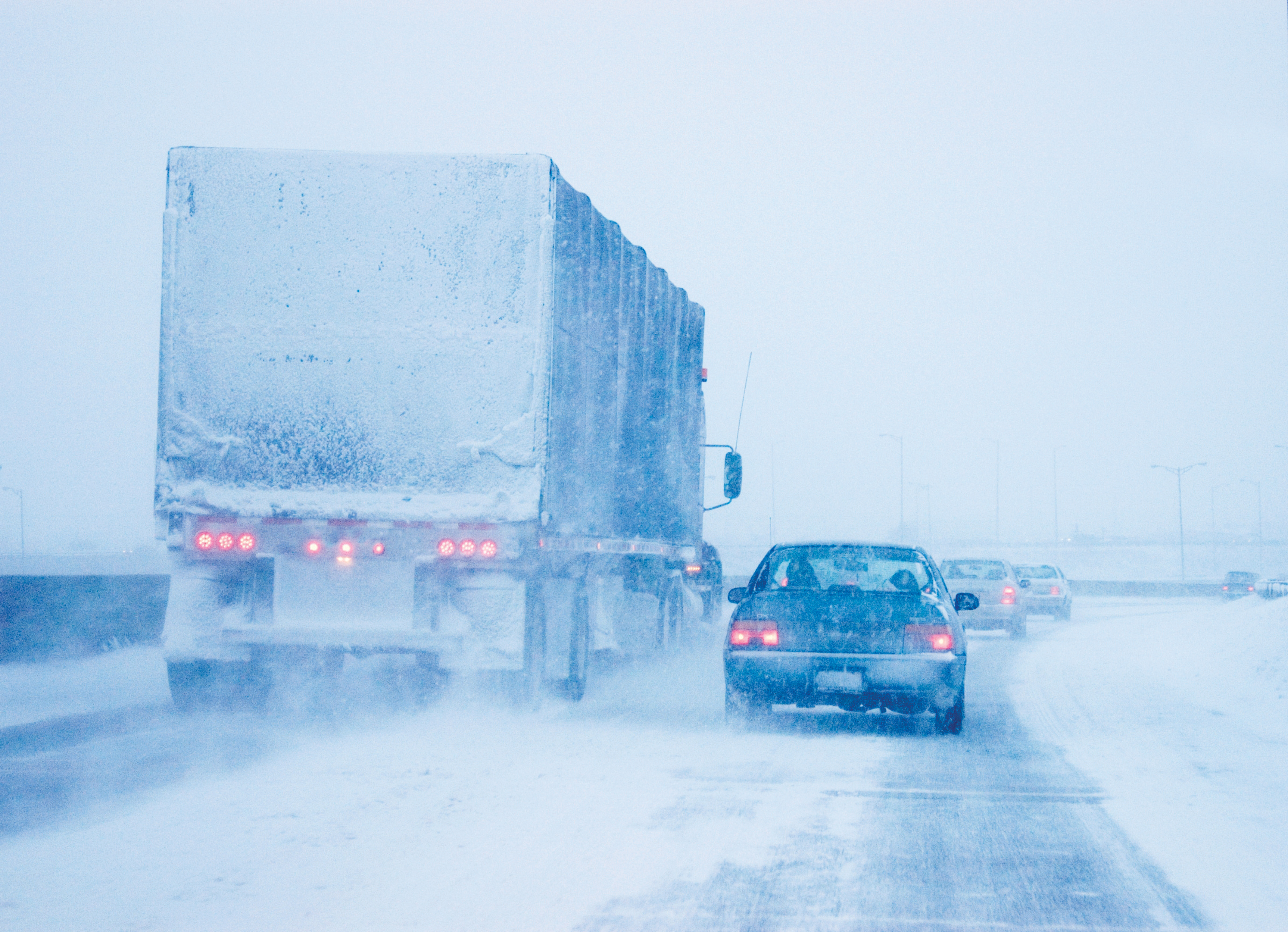
A lack of communications means that the case for more widespread use of road weather information systems is still not happening, says Vaisala's Jon Tarleton. More effective exchanges up and down the political scale are needed, he adds
On any given working day, as the commuter mulls over his or her breakfast, he or she typically wants to know two things: what the traffic is going to be like on the way to work, and what the weather is going to do.The fact is that the two are almost inextricably linked - weather has a direct and often major effect on traffic conditions - and yet many in the ITS sector are having trouble making the connection, says Vaisala's Jon Tarleton.
"Weather's impact on traffic is huge. It is the leading cause of crashes and slowdowns in nearly every case or country, however when the ITS industry looks for solutions the amount of effort which goes towards solving road weather problems is not proportionate to the size of the problem.
"I think that both the transportation management and road user communities continue to think that the one thing they have no control over is the weather - which, of course, is still true. But it means we're probably still thinking that the problems are too large, that we just need to accept them and worry about other issues that are more manageable such as signal timing or ramp metering. In reality there are several things the ITS community could do to address traffic- and weather-related issues."
Sharing information
"A key issue is getting the information to those that need it to make decisions. There are already numerous means by which we can do that - Variable Message Signs [VMS], websites, nomadic devices, the general media such as TV and radio, and, in North America, highway advisory radio. Services are improving, however in many cases a continuing problem is the lack of information to which road users have access."Survey upon survey of traveller information systems has shown that weather is the number one issue the travelling public most wants to hear about. But when you look at many of the respondents' comments, weather is what they are missing most."
Robust deployments
"Many agencies are worried about litigation or weather information going to the traveller that is incorrect. We can't solve the litigation issue but by using a quality system that is properly managed we can prevent the systems from displaying incorrect data."Systems users worry about reliability, that's only natural. They worry over whether the technology will be continually active and whether the information they receive as a result will be accurate and timely. One of the key points to consider at the acquisition stage is the maintenance and routine checking system that should be put in place to ensure that systems will run without interruption. Systems manufacturers and suppliers such as Vaisala can take on that task on users' behalves and that's quite common in parts of Europe; in the UK for instance we maintain nearly all of the systems we sell. Such strategies are less common in the US, however."
Where the US does score, he says, is in the understanding of the importance of bringing weather and traffic data together in a single display or system.
"In the US, it's more common to see decision matrices employed in which multiple variables are reviewed in parallel. So, for instance, visibility might be looked at in conjunction with the traffic situation and a judgement made on which is the most important at any one time. Traffic management systems become more adaptable and as a result generate message sets which best suit motorists' needs."
Year-round utility
"The whole point, though, is that people need to take another look and ask themselves why weather isn't the number one-requested parameter. Why not? There has to be a better understanding that you do not need to change the weather to address weather-related issues." Most road weather monitoring technology emerged from the need to address winter maintenance issues. The perception lingers that systems will therefore lay dormant for a sizeable chunk of the year. It is a significant deterrent to investment, says Tarleton."If you look at most articles and discussions about weather, the emphasis tends to be on winter operations and how to bring about reductions in salt and chemical usage. Vaisala is looking at ways to develop and encourage year-round system operations because that can radically affect the funding and return on investment balance.
March of the machines
Automation is an area ripe for development, according to Tarleton.
"Automated chemical spraying on bridges is already a reality and while we can expect to see humans involved in the control of gritter trucks for quite some time to come, areas such as messaging services could benefit greatly if we were to remove humans from the loop.
"The 'problem' with humans is that they can forget - be it to flick a switch or communicate something on. At the road-user end, that leads to a loss of trust and people not following instructions.
"Static signage is a perfect illustration of this. Take the example of a bridge which is prone to icing in winter. What do you do with the static signage? If it warns of icing year-round, people will take little notice. There are static signs which can be manually folded up or down. They are perhaps more useful. But do you adjust the sign manually every time there's a cold spell, or do you just adjust the sign at the beginning of the winter and then again in the spring? Again, there's a loss of impact. Active messaging, over time, has been shown to positively modify road users' behaviour. And, again, as long as the supporting sensory systems are working properly there won't be mistakes.""So, for example, you might look to site RWIS where they can provide flood or high winds warning information. You might also add a traffic data and air quality monitoring capability. Beyond that, there is merit in looking at the generic effects of weather year-round - the impact of rain, for example.
"We can already do quite a lot to address the issues relating to non-winter weather. Non-intrusive measurement of the friction values of the road surface can be used to provide speed advisories on curves and at other places where there's an aquaplaning risk. Traffic signal timings can also be adjusted to affect traffic speeds."
Making the case
Although there is much that can be done to address what the elements can throw at us, the request still has to come from the customer. Progress has been slow in this regard."A lot of what we see in terms of innovation hasn't trickled down to smaller towns and local agencies yet - although the benefits of intelligent weather management systems are, literally, life-altering.
"Cost is an inevitable factor and these systems aren't inexpensive. However smaller agencies could see much of this cost returned to them through the efficiency improvements that the technology delivers. We need greater communication up and down the political scale." Responsibility for making more robust cost cases for the deployment of more RWIS rests across all stakeholders, Tarleton feels. The transport sector could increase its efforts to sell its success to promote greater usage.
"Agency people are, understandably, often more oriented towards improving operations than developing strategies for selling ideas, or behaving like political creatures. They therefore don't necessarily realise what a big part of their armouries cost-benefit analyses are. And those agencies that do carry out cost-benefit analyses often don't share the information with their peers.
"There's mileage in working towards more concrete business cases. As it stands, the numbers are too vague. For example, we often hear about the billions lost each year to accidents or congestion. However down at the local level it's possible to show that the effects of a good weather management system are more direct. For example, the deployment of a chemical spray system on a vulnerable road section can reduce the number of weather-related accidents in the locality from literally hundreds down to zero. Those are the sorts of figures that we need to be going after to make the case with."












